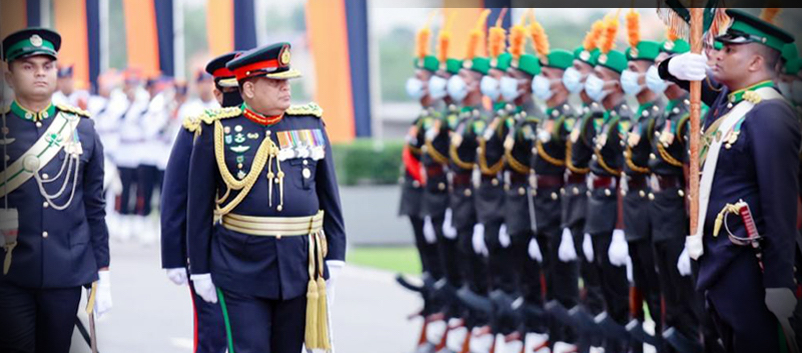
Writing in Just Security, Tasha Manoranjan, founder and a director of People for Equality and Relief in Lanka (PEARL) stresses that “accountability for atrocities against Tamils and curbing Sinhala Buddhist nationalism are key for the island’s future stability and prosperity”.
In her article, she takes aim at Sinhalese Buddhist nationalism, which she describes as “the poisonous thread that links the anti-Tamil chauvinism underpinning every Sri Lankan institution” and “is the root cause of Sri Lanka’s present political and economic crises”.
It is this nationalism that has “explains why, just one year after independence in 1948, Sri Lanka stripped the citizenship of nearly 1 million Tamils; why Sri Lanka then passed the Sinhala Only Act in 1956 to make Sinhala the only official language; why the police stood by or actively participated in Sinhalese attacks against Tamils in 1956, 1958, and Black July in 1983; why the Constitution affords Buddhism the “foremost place” and declares it “the duty of the State to protect and foster the Buddhist Sasana;” why the Jaffna Public Library and its collection of 95,000 ancient Tamil manuscripts was burned to the ground in 1981; and, ultimately, why the majority Sinhalese electorate voted for the Rajapaksas in 2005 and 2019”.
It is an ideology that is “fundamental incompatibility with reality on the island” – that the Tamil nation exists and has a right of right to self-determination. This contradiction has “fueled Sri Lanka’s decades-long cycles of conflict and instability”.
Manoranjan maintains that the antidote to this poisonous nationalism is accountability.
“Accountability is the mirror that can show Sri Lankans who voted for “the Terminator,” as his family admiringly called him, in record numbers what exactly they voted for. Accountability is the answer to Sri Lanka’s seven decades of ethnocracy and ethnic out-bidding, in which the politician with the most Sinhalese Buddhist chauvinist credentials won. Accountability is the way Sri Lankans can confront the rule of law crisis that permeates the island, from dynastic politics to the militarization that Tamils have endured for years and which Sinhalese are now experiencing in their own streets, as protesters were tear-gassed and journalists attacked” she writes.
In her article, she furthers the call for bilateral and multi-lateral engagement with the island to demand:
“justice and accountability for Sri Lanka’s mass atrocities and a sustainable political solution that recognizes the pluri-national character of the island and meaningfully devolves political, economic, land, and security powers”.
“Forthcoming financial assistance must be predicated on safeguarding the rule of law in Sri Lanka to ensure a favorable climate for sustainable investment, and this must include requiring Sri Lanka to ratify the Rome Statute with retroactive effect to 2002” she adds.
She further acknowledges that the Accountability Project established by the UN Human Rights Council session is set to expire in September but that “options for accountability for the mass atrocities of 2009 are broader now than ever before”.
With both Gotabaya Rajapaksa and Mahinda his brothers, including Mahinda, having stepped down, they are no longer protected by immunity.
“These figures can now, finally, face criminal or civil prosecution in the United States or elsewhere for ordering and overseeing the mass killing of Tamils” she writes.
Read the full piece here.
We need your support
Sri Lanka is one of the most dangerous places in the world to be a journalist. Tamil journalists are particularly at threat, with at least 41 media workers known to have been killed by the Sri Lankan state or its paramilitaries during and after the armed conflict.
Despite the risks, our team on the ground remain committed to providing detailed and accurate reporting of developments in the Tamil homeland, across the island and around the world, as well as providing expert analysis and insight from the Tamil point of view
We need your support in keeping our journalism going. Support our work today.
For more ways to donate visit https://donate.tamilguardian.com.

